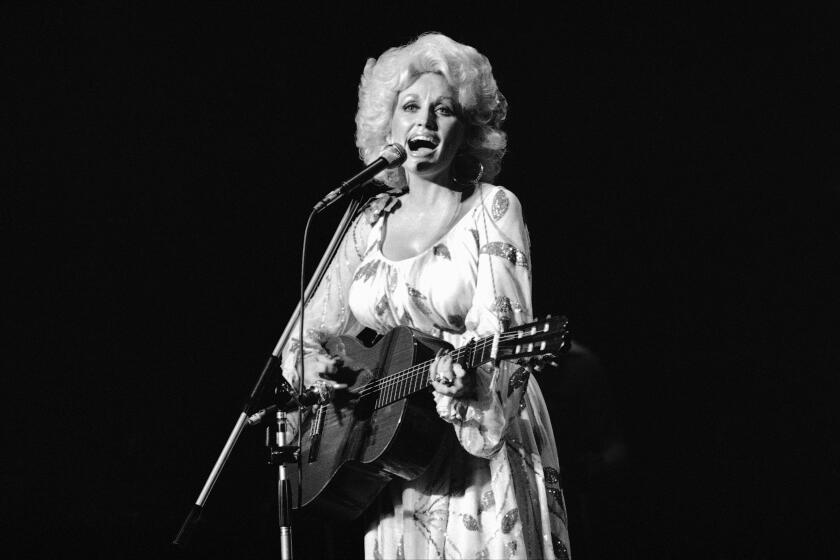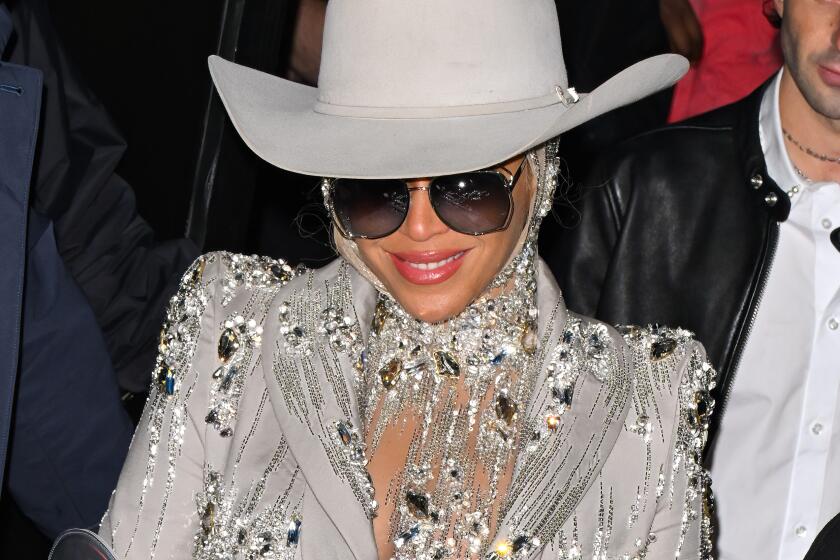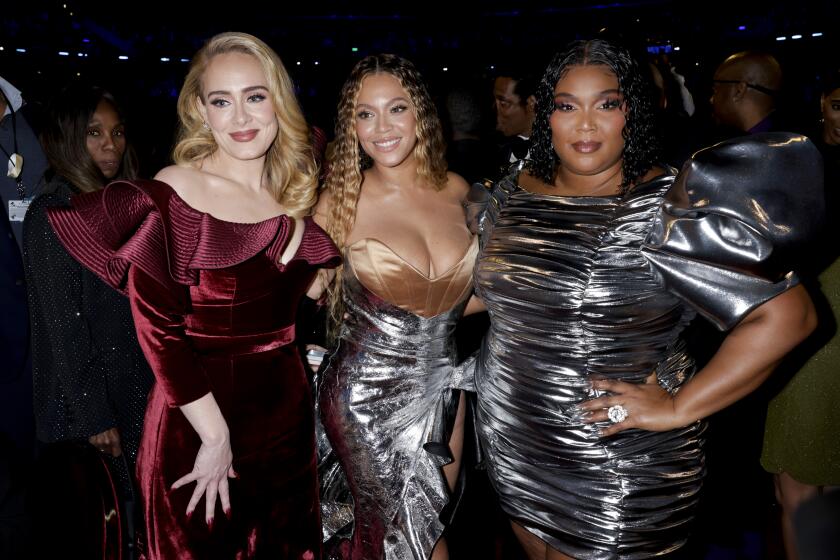The biggest takeaways from Beyoncé’s ‘Cowboy Carter’

- Share via
Beyoncé told us 10 days before she dropped “Cowboy Carter”: It’s not a country album. It’s a Beyoncé album.
The singles from the album, “Texas Hold ‘Em” and “16 Carriages,” and its rodeo-chic aesthetic certainly gave the impression that the album would be pure country, but the final product, which the star released at the stroke of midnight on Friday, is a genre-defying wonder.
Featuring collaborations with country legends including Willie Nelson and Dolly Parton, Beyoncé uses the album to both honor classic country music and redefine what the genre sounds and looks like.
Here are the biggest takeaways from “Cowboy Carter”:
‘Cowboy Carter,’ Beyoncé’s anticipated follow-up to ‘Renaissance,’ drops this week. Here’s what we know so far, including the album’s track list.
The significance of the ‘Blackbird’ cover
The second song on the album is a stirring rendition of the Beatles classic “Blackbird,” featuring four up-and-coming Black female country artists: Brittney Spencer, Reyna Roberts, Tanner Adell and Tiera Kennedy.
While the song is one the Beatles’ most well-known tunes, its meaning and inspiration is lesser known. Paul McCartney has said that he was inspired by the civil rights movement of the ‘60s, and specifically, by the Little Rock Nine — the first Black students to enter a previously all-white high school in Arkansas in 1957.
The powerful meaning behind the song, coupled with the spotlight on rising Black women in country, make the cover a poignant addition to “Cowboy Carter.”
‘Jolene’ is reinvented with Dolly Parton’s blessing
In the most-anticipated and teased collaboration on the album, Beyoncé breathes new life into Parton’s hit “Jolene.” In the interlude “Dolly P,” Parton references the infamous “Becky with the good hair” mentioned in Beyoncé’s song “Sorry” from “Lemonade.”
“Hey, miss Honey Bey. It’s Dolly P. You know that hussy with the good hair you sang about?” she says on the track. “Reminded me of someone I knew back when. Except she has flaming locks of auburn hair. Bless her heart. Just a hair of a different color, but it hurts just the same.”
Half a century after release, the country star’s song based loosely on a flirtation between her husband and a bank teller is Parton’s most covered creation.
The interlude leads into “Jolene,” Beyoncé’s cover of Parton’s prominent 1973 track about a woman flirting with her then-husband. Beyoncé rewrites the lyrics to make the song less of a plea for Jolene to leave her man alone, and more of a warning of what’s to come if she doesn’t do so.
“I’m warnin’ you, woman, find you your own man,” she sings. “Jolene, I know I’m a queen, Jolene, I’m still a Creole banjee b— from Louisianne (Don’t try me).”
Parton had previously given Beyoncé her consequential stamp of approval, saying she couldn’t wait to hear the full album, and also hinted at a “Jolene” cover ahead of the tracklist’s release. She’s since praised the cover.
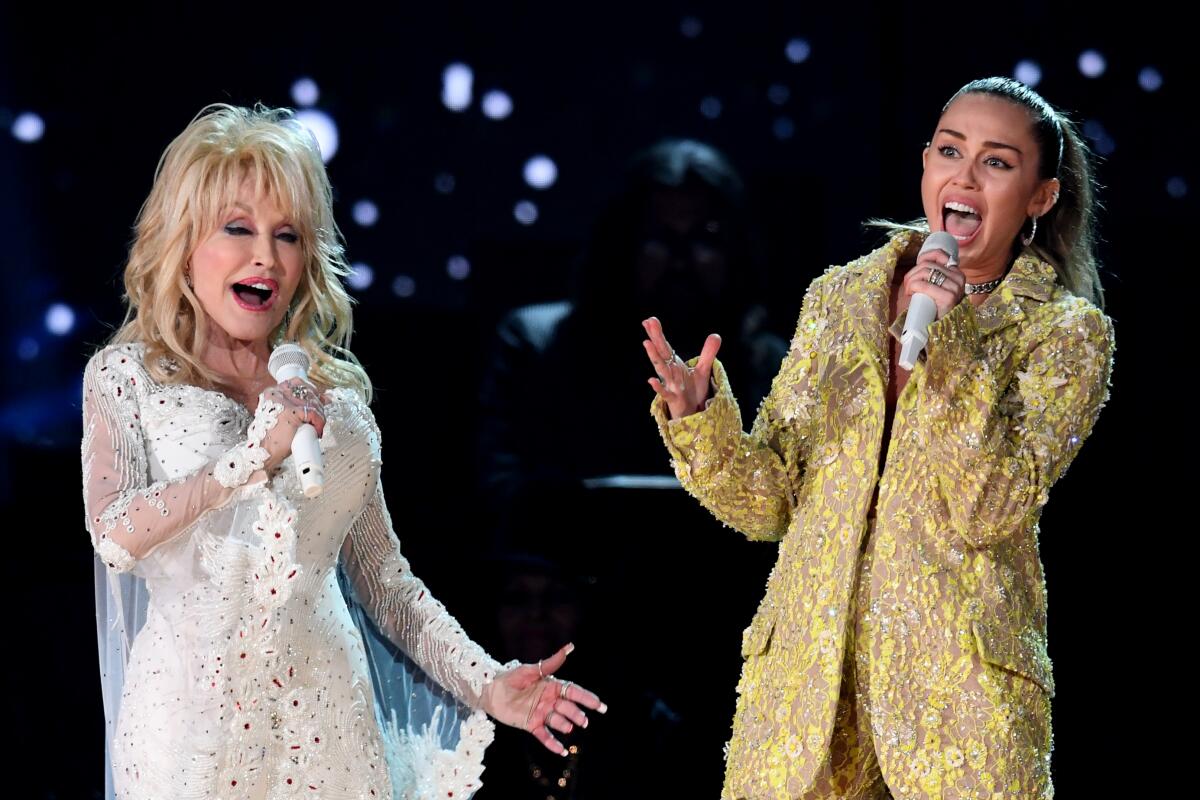
Miley Cyrus returns to her country roots
One of the biggest surprises to come out of “Cowboy Carter” is Beyoncé and Miley Cyrus’ duet, “II Most Wanted.” Cyrus, who won her first Grammy in February, is the daughter of country singer Billy Ray Cyrus and has dabbled in country-inspired work throughout her career, including her own noteworthy cover of her godmother’s hit “Jolene.”
The song shows off the two artists’ impressive vocal chops, and they sing that they will be each other’s “shotgun rider” forever.
Beyoncé became the first Black woman to top Billboard’s Hot Country Songs chart this week amid questions about the genre embracing her latest reinvention.
Cyrus took to Instagram to share her gratitude for Beyoncé, writing that she loved the star long before she worked with her. She shared videos to her Instagram Story of her talking about Beyoncé in red carpet interviews over the years.
“My admiration runs so much deeper now that I’ve created along side of her,” the post continued. “Thank you Beyoncé. You’re everything & more. Love you.”
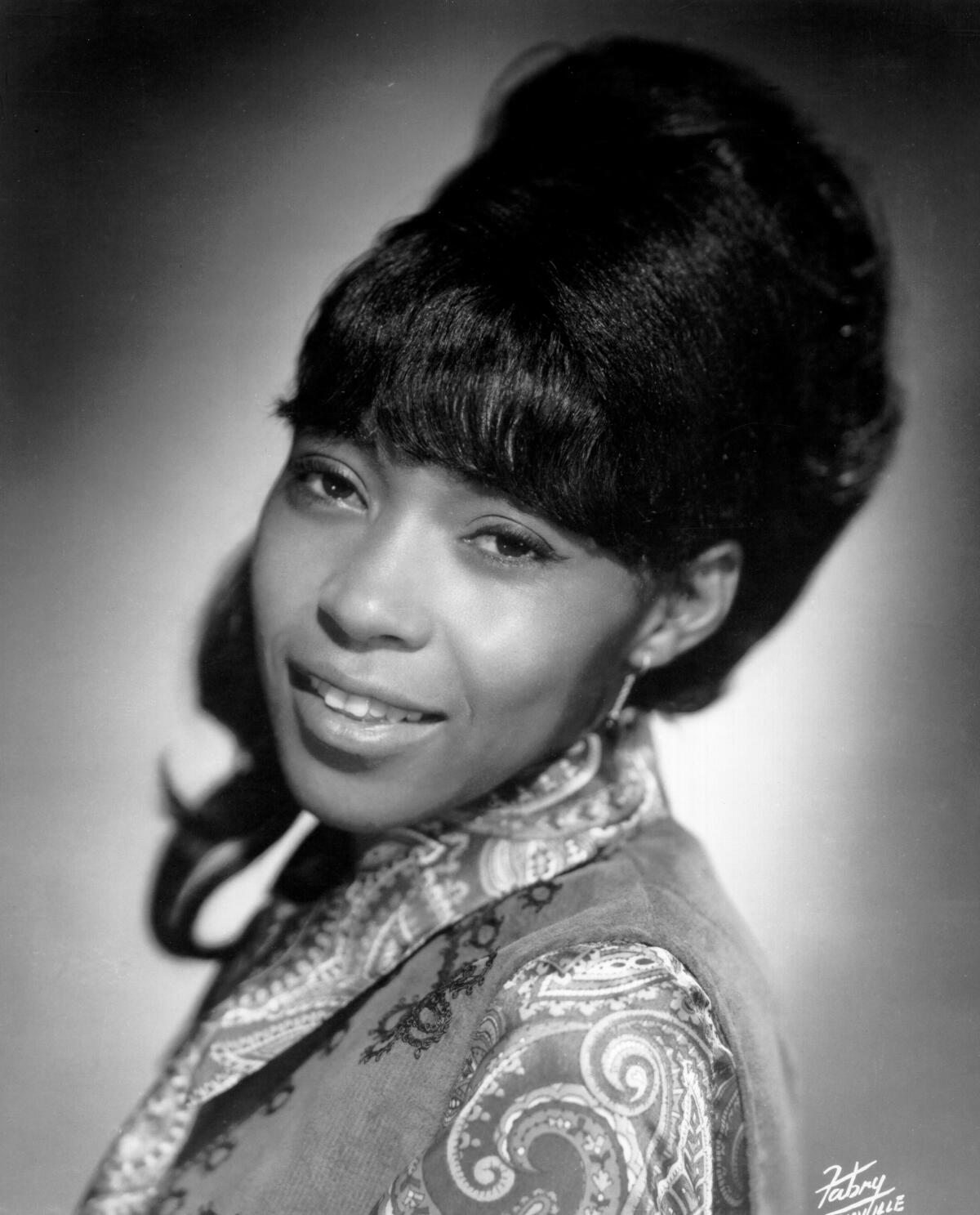
Black country legend Linda Martell joins Beyoncé — and gets her due
Linda Martell is known as the first commercially successful Black female country artist. A pioneer in the industry, Martell paved the way for Beyoncé to create “Cowboy Carter” nearly six decades after Martell started her career.
Martell is featured on two songs: in the interlude of “Spaghettii” and, of course, “The Linda Martell Show.” In each song, Martell talks about how the traditional rules of genre are restrictive.
Martell thanked Beyoncé for including her in the project in a statement Friday on Instagram, writing that she is “proud” of the artist for “exploring her country roots.”
“What she is doing is beautiful and I’m honored to be a part of it,” the statement continued. “It’s Beyoncé, after all!”
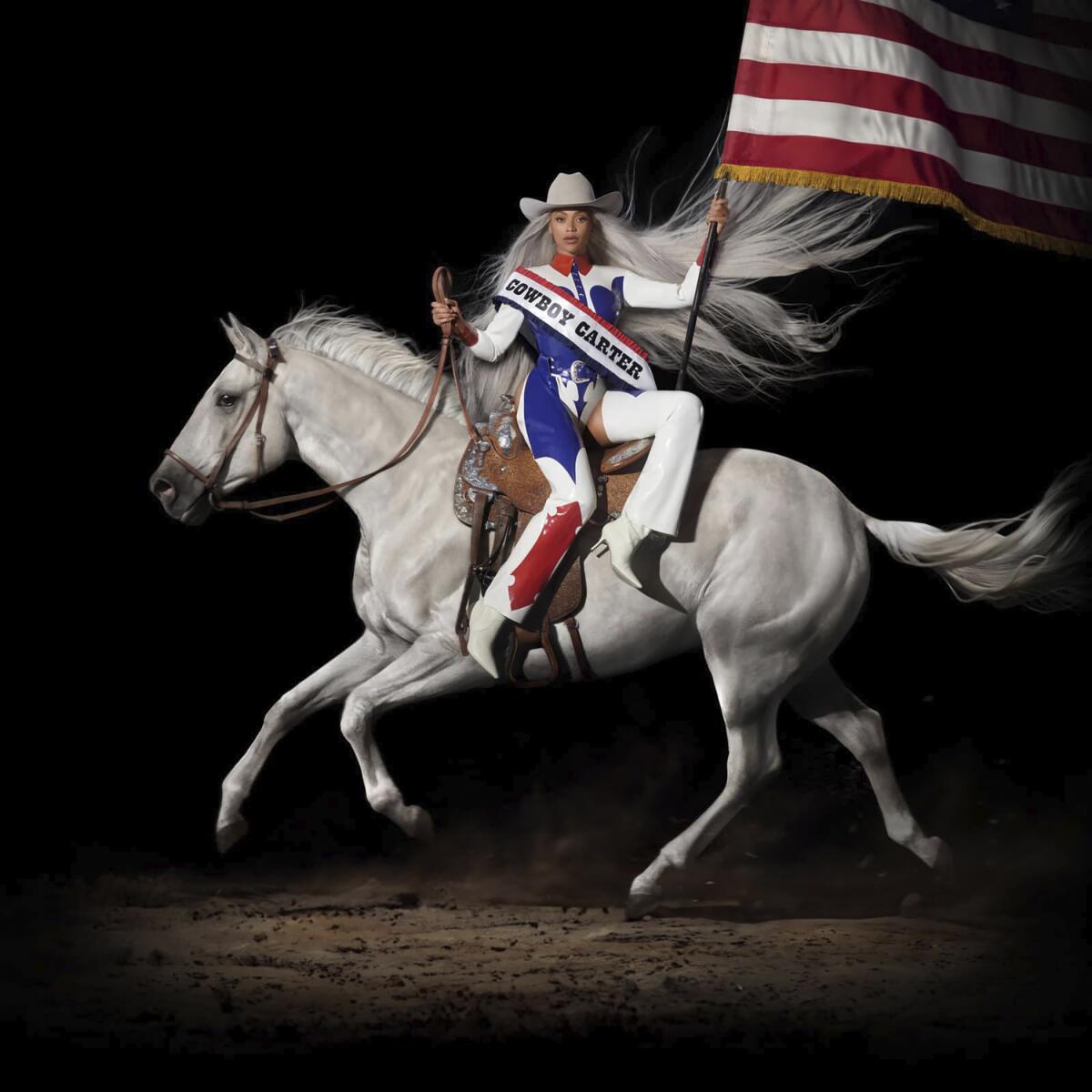
Beyoncé responds to country critics
Many of the lyrics throughout the album discuss the genre directly, and seem to respond to criticism Beyoncé has received any time she‘s ventured into country music territory throughout her storied career.
In “Ameriican Requiem,” the artist overtly addresses her critics, singing: “Used to say I spoke, ‘Too country’ / And the rejection came, said ‘I wasn’t country ‘nough’ / Said I wouldn’t saddle up, but / If that ain’t country, tell me what is?”
In both of Martell’s interludes, she calls out genre purists, seemingly addressing Beyoncé’s detractors who criticized her move into country. She calls genres a “funny little concept” and says, “In theory, they have a simple definition that’s easy to understand / But in practice, well, some may feel confined.” She also introduces “Ya Ya” in her second interlude, saying that the song straddles multiple genres, which makes it a “unique listening experience.”
In what is probably Beyoncé’s most apparent address of her critics, like country radio stations that initially declined to play her singles from the album, she enlists the help of Nelson. The country legend introduces the next song on the album and tells listeners what to take away from his “set.”
“Sometimes you don’t know what you like until someone you trust turns you on to some real good s—,” he says. “And that, ladies and gentlemen, is why I’m here.”
Racism, sexism, fuddy-duddyism: They’re all reasons why the winningest artist in Grammy history lost album of the year yet again, this time to Harry Styles.
Beyoncé isn’t fazed by album of the year snubs
In “Sweet Honey Buckiin’,” Beyoncé addresses her previous albums never taking home the coveted Grammy Award for album of the year. Although she holds the crown for most Grammy wins of any artist, her work has never nabbed “AOTY” and she makes it clear in “Cowboy Carter” that she doesn’t let that fact bog her down.
“A-O-T-Y, I ain’t win / I ain’t stuntin’ ‘bout them / Take that s— on the chin / Come back and f— up the pen,” she sings.
More to Read
The biggest entertainment stories
Get our big stories about Hollywood, film, television, music, arts, culture and more right in your inbox as soon as they publish.
You may occasionally receive promotional content from the Los Angeles Times.

